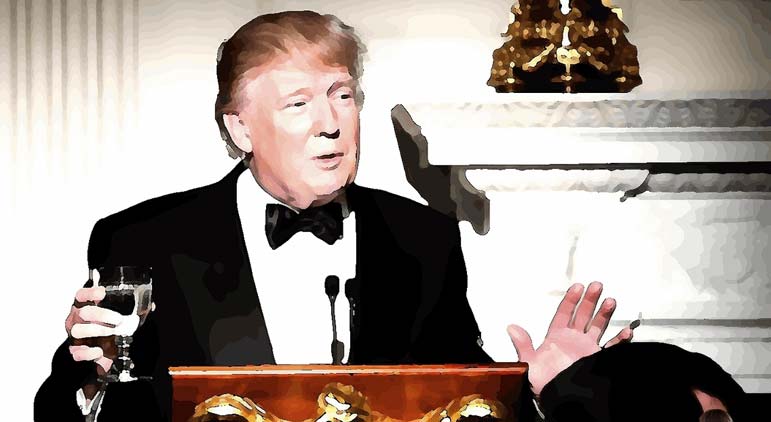
"Loser" is strange word.
Literally and most plainly, it is simply someone who doesn't win some specific contest or challenge: the loser of a race, boxing match, business deal, etc. Economists routinely talk about how this or that policy -- on trade, taxes, whatever -- creates "winners and losers."
A big part of
But here's the thing: The logical and semantic inference of this rhetoric is that Americans, Trump voters or the American military are losers.
Now, hold on. That rage building in some of you at the suggestion that Americans, Trump voters or the American military are losers perfectly illuminates the problem with the word "loser." The moment you use it to describe a person or a group, the meaning changes profoundly from an objective descriptor to a subjective epithet.
I bring all of this up because in his statement on the
"I won't call them 'monsters' because they'd like that term," Trump said. "I will call them, from now on, 'losers,' because that's what they are. They're losers. And we'll have more of them, but they're losers."
The response from many Trump critics has been a mixture of outrage and eye rolling.
Part of the problem is that "loser" is one of Trump's favorite insults. As
But I don't think he was calling me a terrorist.
Moreover, I don't think he's wrong to call terrorists "losers." In the West, a lot of the people attracted to Islamic extremism are losers in all the meanings of the word.
Islamic terrorist organizations are hardly the only groups to recruit from the ranks of loserdom. Street gangs, neo-Nazis and countless communist fronts have been seducing resentful oddballs, outcasts and misanthropes. It simply makes sense that such people would be attracted to such groups. Radical causes provide a sense of meaning, belonging and importance to people who lack such things in their daily lives. Throughout
On the other hand, in some non-Western societies, terrorists aren't losers in the pejorative, schoolyard-epithet sense, but they are losers nonetheless.
Comment by clicking here.
Jonah Goldberg is a fellow at the American Enterprise Institute and editor-at-large of National Review Online.


 Contact The Editor
Contact The Editor
 Articles By This Author
Articles By This Author